- Home
- Peter O'Mahoney
Stolen Power
Stolen Power Read online
STOLEN POWER
PETER O’MAHONEY
STOLEN POWER
A Jack Valentine Thriller
Peter O’Mahoney
Copyright © 2020
Published by Roam Free Publishing.
1st edition.
All rights reserved. No part of this publication may be reproduced, stored in a retrieval system, or transmitted, in any form or by any means without the prior permission in writing of the publisher. This is a work of fiction. Any resemblance to any person, living or dead, is purely coincidental.
Cover design by Belu.
https://belu.design
Also by Peter O’Mahoney
*****
In the Jack Valentine Thriller Series:
Gates of Power
*****
In the Tex Hunter Legal Thriller Series:
Power and Justice
Faith and Justice
Corrupt Justice
*****
*****
In the Bill Harvey Legal Thriller Series:
Redeeming Justice
Will of Justice
Fire and Justice
A Time for Justice
Truth and Justice
*****
STOLEN POWER
A JACK VALENTINE THRILLER
BOOK 2
PETER O’MAHONEY
Chapter 1
At least twenty-five smiling children were on the play equipment, at least twenty-five potential kidnapping targets.
They looked so happy, so carefree, and so innocent on the Saturday morning. For most of the parents at the playground it was a normal start to the weekend, a moment to let their hair down after another stressful week at work. A chance to forget the stress, forget the rush, and forget the anxiety. Let their kids be kids, and take in some time outside.
The air was fresh. It was a bright spring morning, and although the sun had been up for two hours, dew still clung to the grass. Some of the children wore warm coats, others were comfortable in only their t-shirts. It was a colorful array, matching the spring flowers just emerging around the edges of the park. This was a place of happiness, of innocent joy and beauty, but danger lurked there too.
The kidnapper had parked on the road near the edge of the playground, only twenty yards away from the bottom of the slide. The kidnapper searched for the right target, scanning over the boys and girls, laughing freely with no idea of how easy their lives were.
They were rich kids, privileged and comfortable, the sons and daughters of people with money.
But the children didn’t know that yet, they were still so happy. So free.
The glee in their voices, the excitement on their faces.
Their clothes were so pristine, so perfect. For them, life was still an easy collection of days spent with friends; learning, laughing, growing. They knew danger was alive in their city of Chicago, they had practiced school shooting drills earlier that week, but it was just part of their routine, and always an arm’s length away. Their schools were well protected, with very visible security, so real danger was still an abstract concept. Until now. Not one of the children sensed the threat. They were completely unaware of the menace lurking in the street.
The kidnapper spotted the perfect target.
The father looked distracted, he looked like he wanted to be somewhere else. Clean-cut and well-dressed, it was clear this was anything but a day off for him. This man didn’t have days off. Time spent with his child was more an obligation than a joy, a task that had to be negotiated and carried out, while business went on as usual. He took a phone call, shooing his beautiful daughter away. The father couldn’t ignore his phone; the kidnapper knew that. The phone was the father’s lifeblood, his way to make more money. The father was only ever concerned with his wealth. It was his driving force, his reason for getting up in the morning, his all-consuming motivating factor. What he really lived and breathed for.
The phone conversation became louder, and the father stepped away from the playground, away from his five-year-old blonde daughter, putting her in imminent and growing danger with every fateful step he took, both father and daughter completely unaware of the kidnapper’s eyes fixated on them now, watching their every move.
There were so many choices, so many distracted parents. This Saturday morning was a smorgasbord of options.
One five-year-old child had even wandered away from the play equipment by himself, completely ignoring his parents, following a small bird. His wonder was admirable, although they say that curiosity killed the cat.
Kids are so gullible, so easily convinced.
All the kidnapper needed was an instant, one fleeting second of opportunity.
Noble looking, gently swaying, poplar trees lined the yard around the play equipment, and the grass was recently cut. A dog park was next door, and the yapping of the dogs only raised the level of joy in the area. There was a sense of innocence, a sense of joyous freedom.
The kidnapper stepped out of the van and walked closer to the playground, careful not to draw any attention. The kidnapper had dressed to fit in, to look the part of a parent in the upscale suburb, clothes stylish and expensive, but not flashy, clearly designer but without any obvious labels.
“Hello.” The kidnapper leaned down to one little girl, resting a knee on the ground. “I have some chocolates for you.”
The girl smiled.
She was a happy girl, blue eyes, still carefree, a look of pure innocence. Her skin was soft, her cheeks round, and her clothes were clearly brand new. Her shoes were perfectly white Mary Janes, her socks pulled up to her knees, and her fingernails looked like they had been manicured.
The girl didn’t have a worry in the world. Not yet.
“I love chocolates.” The girl smiled.
The plan was perfect. So simple. So easy.
Closer.
The other parents in the park were so at ease, so calm, that they didn’t realize the danger lurking within their own park. They were distracted, too busy with their own lives, their own worlds, to keep their offspring safe.
The kidnapper was an opportunist, a person ready to take advantage of the distracted.
The blonde girl’s father had walked across the road, yelling loudly on the phone. His conversation had become more animated, more intense, and he didn’t want the children to hear the words that he was going to use. The father was dressed in a polo shirt, chino shorts, and loafers; all brand new. His watch looked expensive, and his slicked back hair looked like it was conditioned only with the best that money could buy.
The kidnapper knew the children at the playground in Lincoln Park, Chicago, would be the offspring of the wealthy. These were the children that had the latest gadgets, the newest toys, and the finest clothes. These children were likely never to want for anything, except the attention of their parents. And money couldn’t buy that.
The kidnapper was there to teach the parents that lesson; to teach them that time with children is fleeting, it’s gone too quickly. Life is brief. And the best way to teach someone to appreciate what they have, is to take it away.
One of the mothers stepped past the kidnapper, pushing her child in a stroller, and, to her credit, she hesitated with a momentary look of suspicion. The kidnapper almost wished the mother would say something, would try to stop them, to do anything to prevent them from doing what they were about to do.
But she didn’t.
Her baby gurgled, and with obvious relief, she bent forward to fuss with its blanket and continued on.
Her fear of social reprisal, of making a scene and drawing unwanted attention was stronger than her fear of suspicion.
The kidnapper knew there was nothing to stop them from what they were going to do now.
; It was the only way. The wheels had been set in motion and there was no turning back.
“I have chocolates in my van.” The kidnapper smiled and pointed to the white van parked close by. “I have boxes and boxes of chocolate.”
The blonde girl looked over to her father, still talking loudly on the phone, his actions exaggerated, his anger clear. She was scared of her father’s anger.
She took the kidnapper’s hand, skipping as he led her to the van. She was chattering nonsense the way small children do.
Closer now.
The kidnapper opened the back door. It creaked loudly but no one looked.
The kidnapper pointed to the boxes of chocolates, and then checked for any suspicious eyes watching them.
No one. No one had even looked twice. Shame on them.
The blonde girl stepped into the van, drawn to the chocolates.
And the kidnapper quietly closed the van door.
The plan had begun.
Chapter 2
I hate the news.
It’s always filled with so much despair, so much anger, and there’s so much focus on the worst that life has to offer. Murders, terror attacks, arson—crime is so commonplace that the facts blend into the background, barely raising an eyebrow. We become calloused by default, toughened and hardened to it all as a matter of self-preservation. If not, we would be nervous wrecks from all the negativity bombarding us on the screen. But there’s one type of story that always breaks through, that always registers no matter how calloused to the world people become—anything to do with innocent children. And so it was today in my favorite bar, a story that killed all conversation.
The screen above the bar was playing the headline news and it was running with the story that a third child had been kidnapped in the last three days in Florida. The sunny streets of Florida were a long way from the cold of Chicago, but I felt the parents’ pain. They were crying on the television, unable to hold back their fear, anguish, and despair. Every parent’s worst nightmare. They dropped the ransom, dropped the bag stuffed full of money in the park, just like they were instructed, but the kidnapper ran away with the child once the FBI showed up. They were making a public plea to the kidnappers when the bartender turned up the television. Please, oh please, return our child unharmed, they cried. I didn’t hold out much hope that that would happen, and by the sounds of the parents’ cries, they knew it too.
“The worst thing about these stories,” the man in a dark green flannel shirt next to me said. “Is the copycats it spawns. These people think they can get away with it now. All of a sudden kidnapping is a simple way to make a quick million dollars.” He pointed at the television. “If people see it working, it suddenly becomes a viable business plan.”
The bartender grunted his response, while I went back to my drink.
When I said this place was my favorite bar, I wasn’t talking about a trendy new-age hipster joint with fancy names for cocktails and craft beer that tasted like fruit juice. Nope. The Angry Friar was a place where the bathrooms were vandalized—and rarely fixed—the floor was sticky, and the beer tasted like wholesome dirty goodness. The type of place where blood stained the edge of the pool table and nobody bothered to clean it off, where the lighting was dim enough not to notice the food stains on the tables, and the door was shut no matter the weather to prevent any hint of daylight coming through.
In short, the type of place I felt comfortable.
“I could never harm a kid,” the guy two bar stools down added. His knuckles were scabbed, the tattoos ran up his neck, and he was missing a few front teeth. “You could never pay me enough to do that to some innocent little soul.”
I understood the parents’ pain on the television, I understood how much anguish they must’ve been experiencing. I knew what loss was, I’d swum in a sea of it for years, often to the point of drowning. I always dreamed of having a child with my late wife Claire, may she rest in peace. I thought that a little girl would’ve been perfect, perhaps I would’ve named her Snow, Summer, or Winter. Something memorable for what would’ve been a memorable girl. But that would never happen now.
We had a niece, Alannah, that we both adored. She was a sweet little girl who was obsessed with butterflies, anything to do with butterflies. She loved watching them with the keen eye of a young biologist and would dance around with a look of sheer joy on her face as she followed their erratic flutterings. Her room was covered in pictures of butterflies too, as was her favorite clothing, and she would draw and paint them all the time, in vivid, wondrous colors, like they were magical beings. That’s what we always got her for her birthdays, something to do with her beloved butterflies. She would be nine years old by now. I hadn’t seen her in a while. When my Claire passed away, she left a hundred thousand dollars behind in her will for little Alannah. We always thought we would be right there, watching her and our own child grow up, cousins playing together, having a shared early history. But life doesn’t always work out the way you think it will or hope it does. The money was Claire’s way of wishing her the best for the future.
The grimy and fading mirror behind the bar alerted me to something unusual behind me—someone that looked like they could drink the best whiskey and even afford to pay for it, not that there was any of it here. The man behind me, seated at a table by himself, was swirling his drink, occasionally looking up at me, or at least the back of my head. He was dressed in a canary yellow polo shirt, slacks and shiny shoes. His arms were tanned a deep walnut brown, probably from spending too long sailing his yacht on the weekends, although his left wrist was marked by a stark band of white. At least he had the good sense to take off his expensive watch before he came into a dive bar like this—so the guy had some smarts, but that didn’t mean he was clever, only cautious and apprehensive. But not cautious enough.
I wasn’t the only person whose attention was being drawn by this stranger, with some of the locals staring his way too, perhaps wondering if he was a cop or not. I didn’t believe that for a second. He wasn’t disguised enough for a cop and his clothes clearly cost too much money; undercover cops made the effort to blend in, although all too often badly, at least to the trained eye like mine. One of the guys playing pool approached the man with slicked back hair, and asked him, politely of course, if he had a problem.
The man didn’t respond, not even looking up from his drink, he just stared at it fixated. It was a brave move, but he had the resolve to ignore his inquisitor, as if he were insignificant and didn’t even warrant an acknowledgement or reply. The pool player soon lost interest, shrugged his shoulders and left him to it, and he went back to the table, missing his next shot badly.
A moment later the man looked up from his drink, eyes focused once again on me. This time I turned from the mirror and looked him squarely in the eye, not with menace but a look, firm and uncompromising, that begged a simple question: You want something, stranger? He quickly diverted his eyes from me. If I didn’t know better, I’d say he was working up the courage to hit on me.
I left my drink, although there was still a mouthful of my Goose Island IPA remaining, dropped some bills on the counter for the bartender, and walked towards the door. When I reached it, I glanced behind me, and saw the man had made a move.
Now it was time for me to make mine.
I stepped outside, surprised to see that the sun had already disappeared for the day, dusk was upon us and a chill hung heavy in the air. Here I waited. Down the bottom of a short flight of stairs from an overpass, our dive bar was usually hidden from the tourists, the wanderers, or the office workers. If you didn’t know The Angry Friar was there, you’d never notice it. There was no big flashy sign enticing you in, no advertising boards and certainly no outdoor seating.
It was just the way we liked it.
Nobody wanted new comers; not the owner, not the bartender, and certainly not the clientele.
The door opened again and my hand went straight to the man’s throat—always a favorite move.
>
The benefit of being six-foot-four and broad shouldered was that most people talked when I threatened them. I slammed my new friend against the brickwork, hard enough for his head to bounce off the wall, and brought my nose to his, the aroma of his expensive cologne mingling with another unmistakable smell: fear. His eyes widened as a look of panic spread rapidly across his face. Whatever he had been hoping to achieve, it certainly wasn’t this. I didn’t grip him especially hard, at least for me, but he still gasped for air, sucking it in rapid little bursts, half due to his semi contracted windpipe, half out of abject terror. This was not a man used to physical altercations, whereas for me it was just another day in the office.
“You’ve got three seconds to tell me what you want.”
Pretty-boy tried to say something, but clearly my knuckles were too far into his throat. I loosened my pressure, but not enough for him to wriggle free.
“You’re Jack Valentine, the private investigator?” he said, rasping.
“I am.”
“My daughter’s been kidnapped.” There was a tear in his eye. “And I need your help.”
Chapter 3
Sometimes, posh is an understatement. The penthouse apartment of Chase Martin was enormous, sitting on top of a high-rise in the upscale suburb of the Gold Coast. On one side the vista from the floor to ceiling windows stretched far out onto Lake Michigan, and on the other, a spectacular view of Downtown Chicago, the architecturally designed buildings shining in all their glory. The kitchen was decked out in all the latest top-brand gadgets, but it was pretty obvious they got very little use, Chase Martin was not the kind of man to make his own coffee, let alone cook his own dinner. The shiny mixer, blender, espresso machine, grinder, and juicer were all for show, not function. As for furniture, the minimalist white leather couch looked pristine, as though it was hardly ever sat on, leaving me to wonder where his daughter played when she stayed over. No doubt she spent plenty of time parked in front of the TV or iPad. The expensive show home and her father’s rich lifestyle were not to be disturbed by a child’s natural need for play and mess.

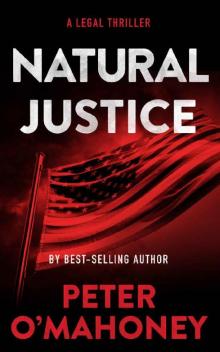 Natural Justice: A Legal Thriller (Tex Hunter Legal Thriller Series Book 6)
Natural Justice: A Legal Thriller (Tex Hunter Legal Thriller Series Book 6)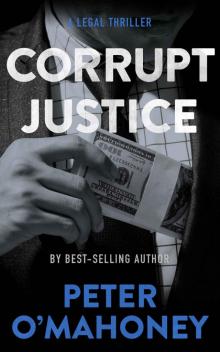 Corrupt Justice
Corrupt Justice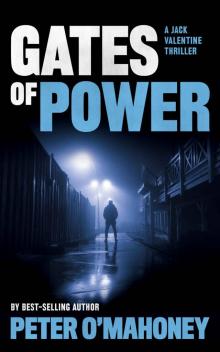 Gates of Power
Gates of Power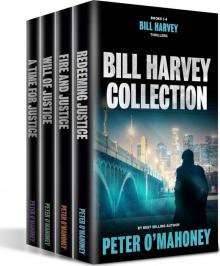 Bill Harvey Collection
Bill Harvey Collection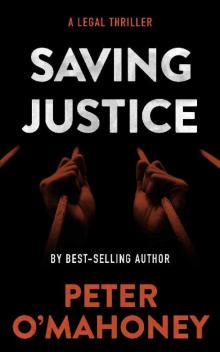 Saving Justice: A Legal Thriller (Tex Hunter Book 5)
Saving Justice: A Legal Thriller (Tex Hunter Book 5)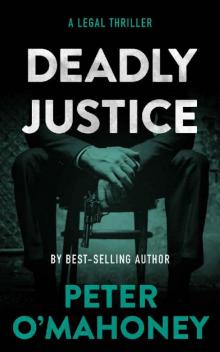 Deadly Justice: A Legal Thriller (Tex Hunter Book 4)
Deadly Justice: A Legal Thriller (Tex Hunter Book 4)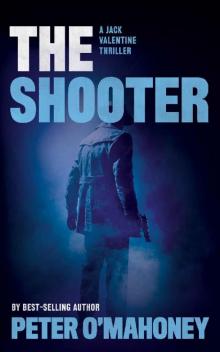 The Shooter
The Shooter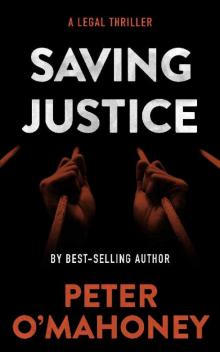 Saving Justice
Saving Justice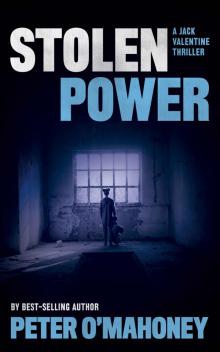 Stolen Power
Stolen Power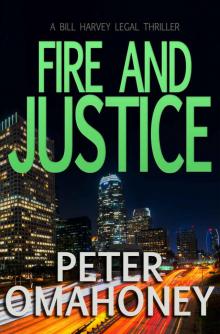 Fire and Justice_A Legal Thriller
Fire and Justice_A Legal Thriller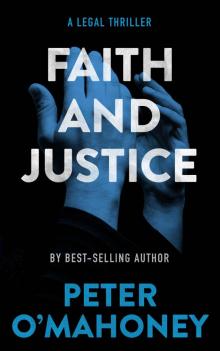 Faith and Justice
Faith and Justice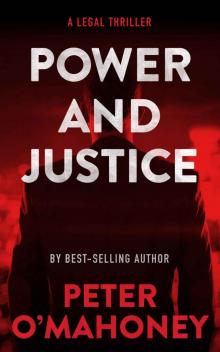 Power and Justice
Power and Justice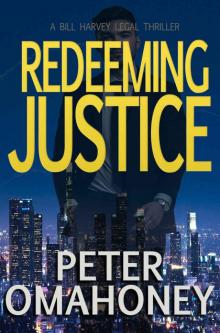 Redeeming Justice: A Legal Thriller (Bill Harvey Book 2)
Redeeming Justice: A Legal Thriller (Bill Harvey Book 2)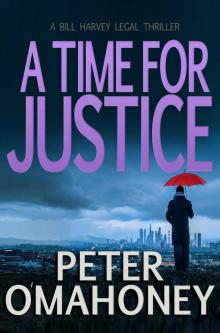 A Time for Justice: A Legal Thriller (Bill Harvey Book 4)
A Time for Justice: A Legal Thriller (Bill Harvey Book 4)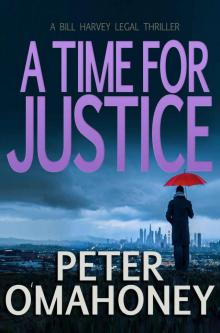 A Time for Justice_A Legal Thriller
A Time for Justice_A Legal Thriller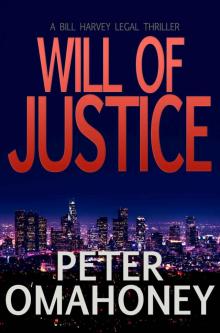 Will of Justice: A Legal Thriller (Bill Harvey Book 1)
Will of Justice: A Legal Thriller (Bill Harvey Book 1)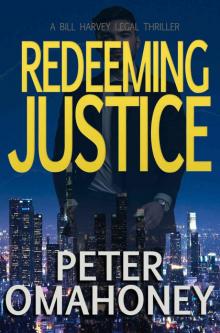 Redeeming Justice_A Legal Thriller
Redeeming Justice_A Legal Thriller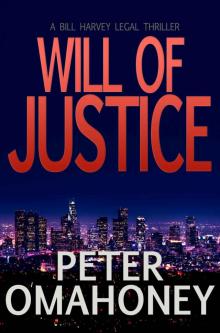 Will of Justice_A Legal Thriller
Will of Justice_A Legal Thriller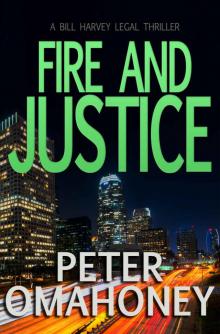 Fire and Justice: A Legal Thriller (Bill Harvey Book 3)
Fire and Justice: A Legal Thriller (Bill Harvey Book 3)